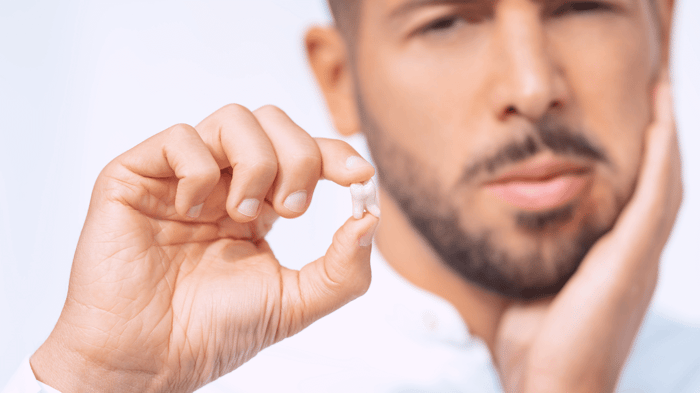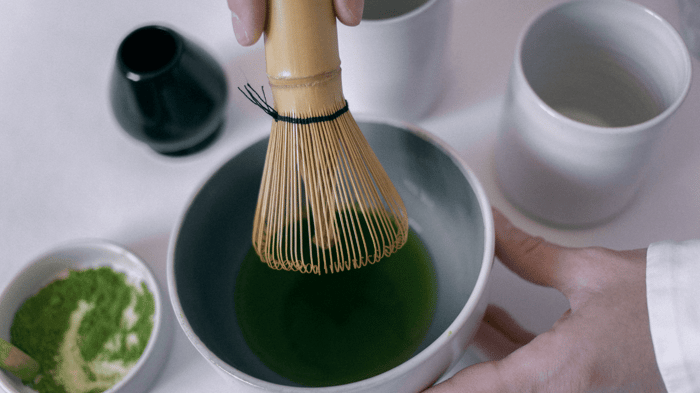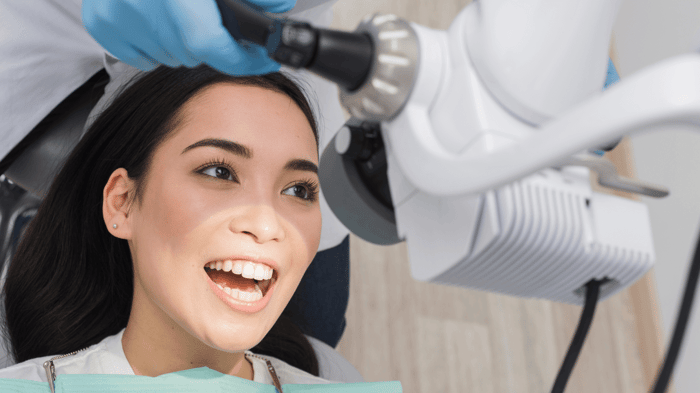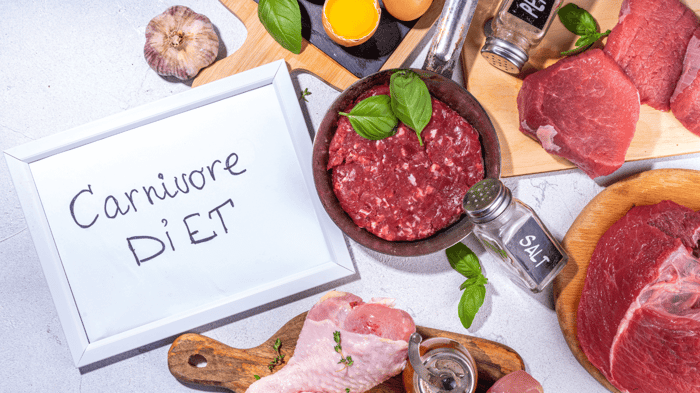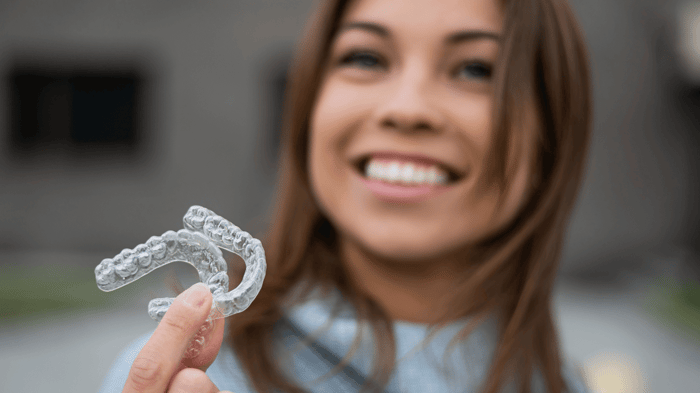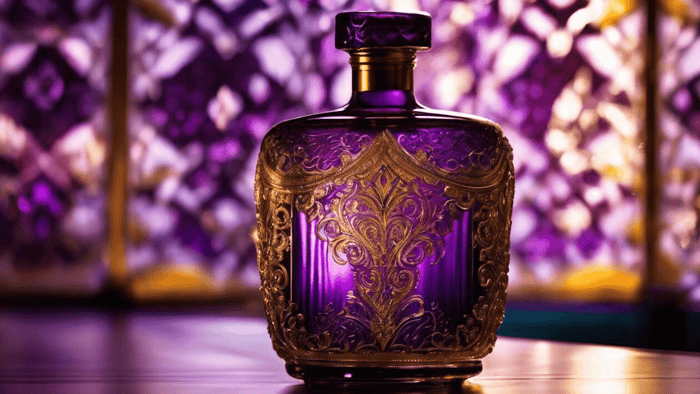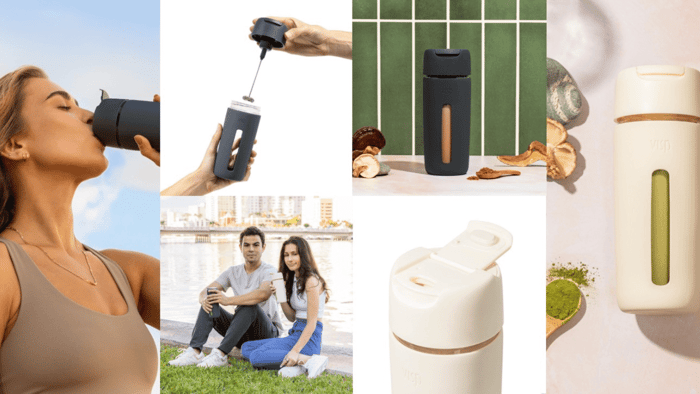Can I Drink Iced Coffee After Tooth Extraction? Drinking iced coffee after a tooth extraction should be done with caution. Drinking iced coffee after a tooth extraction should be done with caution. The cold temperature can provide a numbing effect that may soothe any pain, but caffeine could disturb your recovery. Unexpectedly, the mild temperature contrast can even aid in reducing swelling around the affected area. First and foremost, remember to heed your dentist's advice about when and what you can consume post-extraction.
It's advisable to avoid consuming any hot or cold beverages, including iced coffee, immediately after a tooth extraction. The temperature extremes could potentially disrupt the healing process and lead to complications. It's best to stick to room temperature or lukewarm liquids for the first few days following the procedure. Always consult your dentist for personalized post-extraction care instructions.

Precautions Before Consuming Beverages Post Tooth-Extraction
Again, turning our attention to: Can I Drink Iced Coffee After Tooth Extraction? Drinking iced coffee after a tooth extraction should be done with caution. When it comes to enjoying a refreshing beverage after a tooth extraction, there are some important things to keep in mind. First and foremost, always remember that healing takes priority. So before you take that first sip, understanding the precautions to take is essential:
-
Follow the Dentist's Instructions: Listen closely to your dentist's instructions about when and what kinds of drinks are safe to have after your tooth extraction. They'll provide guidance on what is best for your specific situation – following their advice could make all the difference in your healing process.
-
Avoid Straws: Hold off on using straws until you're fully healed. The suction created by sipping through a straw may dislodge the blood clot that forms in the socket after an extraction. This can lead to dry socket, a condition characterized by persistent pain and delayed healing.
-
Check Temperature Sensitivity: Once you've been given the green light to sip some beverages, be aware of their temperature. Excessively hot or cold drinks can cause discomfort and even slow down the healing process.
You see, snapping up a straw might seem like a minor thing in the grand scheme of drinking beverages. Yet surprisingly, using a straw can have major consequences after tooth extraction. The suction from drawing liquid through a straw might disrupt the protective blood clot forming over your extraction site, leading to complications that slow down your healing.
Fancy an ice-cold beverage to quench your thirst? Hold that thought! Extremely hot or cold drinks can actually cause pain if they come into contact with the surgical site. A sudden temperature change can lead to sensitivity or even prolonged discomfort during your recovery period.
The dentists are our beacon of hope as they provide custom-tailored guidelines to ensure our safe and speedy recovery post-tooth extraction. Trust their expertise and adhere strictly to their recommendations concerning consuming beverages - even though it might feel like unnecessary rules at times.
It's not just about nursing your smile back to full health; these precautions lay the groundwork for a quicker and more comfortable recovery period, setting you on course for brighter days ahead.
Drink Options: From Iced Coffee to Alternatives
After a tooth extraction, you might be eager to enjoy your favorite drinks again. While iced coffee might not be on the menu straight away due to its temperature and caffeine content, several alternatives can provide hydration and comfort without posing risks to the healing site.
Room Temperature Water
Sipping on water at room temperature is soothing and gentle on the mouth. It also helps prevent dehydration without posing any risk to the extraction site, making it a safe choice for maintaining hydration during the recovery period.
Herbal Teas
Mild herbal teas, such as chamomile or peppermint, when brewed at a lukewarm temperature, can offer a calming and comforting option for post-extraction hydration. The mild flavors and warmth of herbal teas can provide a soothing sensation without agitating the sensitive area of the extraction.
Fruit Juices
Opting for natural fruit juices—preservative-free and diluted with water—can provide essential vitamins while being gentle on the mouth. Diluting fruit juices with water creates a refreshing option that is less acidic and intense but still delivers added nutrients, which can aid in the healing process.
Keep in mind that all of these options should be consumed with care. Avoid using straws or swishing vigorously to prevent dislodging the blood clot that forms in the socket after extraction.
As always, it's best to consult with your dentist about which specific beverages and temperatures are appropriate for your unique healing process. They can provide personalized recommendations based on the extent of the procedure and your individual recovery needs.
Waiting Time: When Can I Drink Iced Coffee After Tooth Extraction?
The first 24 hours after a tooth extraction are critical. During this period, it's best to avoid any food and drink that might disrupt the initial healing process, including iced coffee. It's vital to give your body the time it needs to start the healing process and form a blood clot at the extraction site. As tempting as it may be to reach for that soothing iced coffee, doing so prematurely can lead to complications like a painful condition called dry socket.
A dry socket occurs when the blood clot that forms after a tooth extraction is dislodged or dissolves before the wound has healed. This leaves the underlying nerves and bone exposed to air, food, and liquids and can seriously delay healing and cause significant discomfort.
Timeframe for Safe Consumption
When you think about: Can I Drink Iced Coffee After Tooth Extraction? Drinking iced coffee after a tooth extraction should be done with caution. It's usually recommended to wait at least 24 hours before resuming consumption of iced coffee or other potentially irritating substances following a tooth extraction procedure. However, individual recovery times may vary, and it is essential to follow the specific guidance provided by your dentist or oral surgeon. If additional procedures such as bone grafts were performed in conjunction with the extraction, your healthcare provider may require you to wait longer before consuming iced coffee.
Most importantly, whenever in doubt about consuming specific beverages or foods post-tooth extraction, do not hesitate to consult your dental professional.
Understanding the waiting time involved in resuming iced coffee consumption after a tooth extraction is crucial to ensuring proper healing and minimizing potential complications.
Best Ways to Enjoy Iced Coffee After Extraction
So, you can't wait to savor your long-awaited iced coffee after a period of abstinence? Here are some tips for maximizing your enjoyment while ensuring that you're appropriately caring for your healing mouth at the same time.
Sip Slowly from a Cup
One of the keys to enjoying iced coffee post-extraction is to take your time and savor it slowly from a cup rather than using a straw. Drinking from a straw creates suction, which could potentially dislodge the blood clot that is part of the healing process. This clot serves as a natural barrier, protecting the underlying nerves and bone tissue. If it becomes dislodged, it can lead to what's called a dry socket, a painful condition that occurs when the blood clot is lost or dislodged too soon before the wound has fully healed.
Drinking slowly from a cup minimizes the risk of complications and gives you ample time to enjoy the refreshing flavors without any discomfort.
Choose Decaffeinated
Opting for decaffeinated iced coffee has its benefits during the healing phase. Caffeine can sometimes interfere with the body's ability to heal properly so temporarily cutting back might promote better recovery. Plus, even if you're a caffeine lover, going for decaf helps keep consumption in check while maintaining overall hydration levels essential to healing.
With these tips in mind, you can enjoy your iced coffee post-extraction without compromising your recovery process. It's all about finding the right balance between enjoyment and self-care.
Now that we've explored ways to indulge in iced coffee responsibly after tooth extraction, let's delve into an essential aspect of post-surgery care—fluid intake and hydration.
Hydration Guide: Fluid Intake Post Tooth Extraction
After a tooth extraction, maintaining proper hydration is crucial to support effective healing. Opting for lukewarm and cold fluids can provide soothing relief and be more gentle on tender gums, helping to avoid discomfort and disruptions during the early stages of recovery.
Lukewarm fluids like room temperature water, herbal tea, or mild broth are gentle on the site of the extraction and can keep your body hydrated without causing additional sensitivity.
Cold fluids, such as chilled water, iced tea, or very gently iced coffee (without a straw), can help reduce discomfort and swelling, provided they are consumed cautiously to avoid disturbing the healing clot.
It's also important to be cautious when drinking after a tooth extraction. Lifting a cup to your mouth should be done gently to prevent any accidental injury through jostling or bumping at the site. Using a small teacup or glass rather than something larger may be easier to handle delicately in those first couple of days.
For a refreshing treat that aligns with these guidelines, try creating infused water at home by adding fruits like lemon, lime, cucumber, or berries to a pitcher and letting it sit in the fridge for a couple of hours. This will give you flavorful hydration that aids in your recovery process.
Focusing not only on hydration but on avoiding unnecessary irritation or distress to the extracted area is crucial. Paying attention to these small details can make all the difference in supporting a smooth and uncomplicated recovery process.
Understanding how essential proper fluid intake is post-tooth extraction - it's about comfort, soothing relief, and aiding the body's natural healing processes without causing any setbacks.
Optimal Dental Care Post-Extraction

Gentle and careful care is crucial to uneventful recovery after a tooth extraction. Ensuring that the wound area stays clean and protected from irritation can make all the difference in your post-surgery healing experience. Here are some essential steps to make sure your oral hygiene fosters, rather than hinders, the healing process.
Gentle Brushing
Maintaining oral health post-surgery is vital. You should continue good oral hygiene but with utmost delicacy around the extraction site. Employ a soft-bristled toothbrush for gentle cleaning of your teeth and tongue without disturbing the wound site. This aids in plaque removal while preventing discomfort or bleeding. This is not the time for vigorous brushing; instead, slow and gentle strokes are crucial to sidestep irritation or damage to the vulnerable area.
Choosing a toothbrush with soft bristles and a small head helps you access hard-to-reach spots in your mouth without causing unnecessary distress to the surgical site. It's essential to adhere to your regular dental routine during this period to prevent additional issues that may accompany compromised oral care.
Saltwater Rinses
In addition to brushing, it's recommended to rinse your mouth with warm salt water (a gentle teaspoon of salt dissolved in a cup of warm water) after meals and whenever necessary. This routine eliminates loosened debris or bacteria from the extraction site, ensuring cleanliness, which is crucial for preventing infection and promoting healing.
This routine is especially critical as it promotes faster tissue repair, minimizing your risk of developing complications such as dry socket. Swishing gently with warm salt water can offer soothing relief after you eat while keeping your mouth clean and free from lingering bits of food.
Here's a practical analogy: rinsing with salt water is like giving the surgical area its own private spa treatment. It ensures any lingering particles are gently washed away while providing a soothing antiseptic environment that supports a healthy healing process.
By practicing gentle brushing and incorporating warm saltwater rinses into your daily routine, you'll actively aid the healing process while also promoting overall oral health.
This preventive quest doesn't stop at cleansing practices post-extraction; it extends into addressing optimal methods for achieving top-tier results in the recovery phase.
Getting the Best Healing Results After a Tooth Extraction
So, you've just had a tooth extraction, and all you want is for everything to heal up quickly and without any pain. Your dentist's aftercare instructions are going to be key in making this happen. They'll likely tell you to:
-
Restrict Intense Physical Activities: Yes, this means taking it easy for a couple of days. Avoiding things like exercise, heavy lifting, or anything else that could make your blood pressure go up. This is super important because raising your blood pressure can cause the extraction site to bleed or swell.
-
Stick to a Soft Diet: After an extraction, avoid hot, spicy , or acidic foods that could irritate the site. Instead, opt for softer foods like mashed potatoes, soups, yogurt, and blended smoothies. And definitely nix any straws; they can create suction in your mouth which isn't great for healing.
Here's a valuable tip from those who have been there: ensure that you eat small pieces slowly and chew on the opposite side of your mouth to keep the extraction area safe.
It can be tempting to ignore these guidelines especially if you're feeling okay but remember that these precautions can make a big difference between a smooth recovery and complications.
The Importance of Follow-Up Appointments
Your dentist might want to see you again in a week or so after your extraction. Go to this appointment! It's crucial because it gives your dentist a chance to check how well you're healing. They'll remove any stitches if needed and ensure everything's looking good.
Consistent Oral Care is Critical
In addition to following your dentist's advice, practicing good oral hygiene is vital. As your mouth heals, gently rinse with warm salt water multiple times a day to keep the area clean.
Keep in mind: Even with all the extra care we take after an extraction, sometimes things just don't go as planned. If you notice anything out of the ordinary—like excessive bleeding or worsening pain—contact your dentist right away.
Proper care after an extraction involves not just managing discomfort but playing an active role in ensuring proper healing and preventing potential complications. Taking this proactive approach significantly reduces the likelihood of unfavorable outcomes and helps pave the way for a speedy recovery.
Potential Risks and Complications: What to Look Out For
Recovery after a tooth extraction might come with unexpected turns. While pain and discomfort are typical, certain signs could indicate trouble brewing. It's crucial to pay close attention to your body's signals during the healing process. Excessive bleeding, severe pain, or unusual discharge from the extraction site are red flags that require immediate attention.
Excessive bleeding in the hours following an extraction is not uncommon, but if it doesn't subside or worsens, it may signal an underlying issue. To help control the bleeding, placing a clean gauze pad over the affected area and biting down gently for around 45 minutes can often stop it.
If the pain becomes increasingly severe and is not alleviated by prescribed medication or persistently throbs, contacting your dentist is essential. Persistent pain beyond what is typically managed by medication could signify infection or nerve damage.
Discharge from the extraction site that is foul-smelling, discolored, or excessive may indicate an infection. An infection can hinder the healing process and pose serious health risks if left unaddressed. Promptly reaching out to your dental professional ensures timely treatment and prevents further complications.
It's important to remember that while complications aren't common after a tooth extraction, being informed and vigilant about these potential risks enables swift intervention should the need arise.
When dealing with potential complications, seeking guidance from your dentist sooner rather than later is always recommended. Your dentist can evaluate the situation properly and provide necessary treatment to resolve any issues promptly, ensuring a smooth recovery.
Understanding the signs of potential risks and complications puts you in control of your recovery journey — knowledge empowers swift intervention when needed.
Being aware of potential risks and taking appropriate steps for care is key to successful recovery after a tooth extraction. By being proactive, you empower yourself to handle any challenges that may arise during this crucial healing process.
Will drinking iced coffee after tooth extraction impact the effectiveness of pain medication or antibiotics prescribed for recovery?
Yes, drinking iced coffee after tooth extraction can potentially impact the effectiveness of pain medication or antibiotics prescribed for recovery. Caffeine has been found to interfere with certain medications by increasing their metabolism rate in the body, leading to decreased drug levels and potentially reducing their therapeutic effects. Additionally, drinking cold beverages may constrict blood vessels and slow down the absorption of medications. It is advised to follow the guidelines provided by your healthcare professional to ensure optimal healing and minimize any potential interactions between coffee and medication.
Are there any specific guidelines or recommendations for consuming cold beverages like iced coffee after tooth extraction?
Yes, there are specific guidelines for consuming cold beverages like iced coffee after tooth extraction. It is generally recommended to avoid hot or cold drinks immediately after surgery as they can cause discomfort and slow down the healing process. According to a study published in the Journal of Oral and Maxillofacial Surgery, consuming cold drinks after tooth extraction can lead to increased sensitivity and delayed healing. It is advised to wait until the extraction site has fully healed before enjoying your favorite iced coffee to ensure optimal recovery.
How long should I wait before safely enjoying a cup of iced coffee after tooth extraction?
It is recommended to wait at least 24 hours before safely enjoying a cup of iced coffee after tooth extraction. This allows sufficient time for the blood clot to form and promote healing. Consuming hot or cold beverages too soon can disrupt the clot formation and lead to complications such as dry socket. According to a study published in the Journal of Oral and Maxillofacial Surgery, waiting 24 hours significantly reduces the risk of developing dry socket by 75%. So, patience is key for a smooth recovery and uninterrupted caffeine fix!
Can drinking iced coffee after tooth extraction cause any complications or delays in the healing process?
Yes, drinking iced coffee after tooth extraction can potentially cause complications and delays in the healing process. The cold temperature can constrict blood vessels and reduce blood flow to the extraction site, slowing down the healing process. Additionally, caffeine found in coffee can interfere with the body's ability to absorb calcium, which is essential for proper bone healing. According to a study published in the Journal of Oral Surgery, patients who consumed caffeinated beverages after oral surgery experienced delayed healing compared to those who avoided such beverages. Therefore, it is advisable to avoid iced coffee during the post-surgery healing period to promote a faster and smoother recovery.
Are there any alternative beverages that are suitable for consumption after tooth extraction, aside from iced coffee?
Yes, many alternative beverages are suitable for consumption after tooth extraction aside from iced coffee. Some examples include room-temperature water, herbal tea (without caffeine), milkshakes, smoothies, and fruit juices (without any pulp or seeds). These beverages provide hydration, and nutrients, and some even have healing properties. It is important to avoid hot drinks like coffee as they can increase blood flow to the wound site and delay healing. Additionally, Statistics show that consuming cold beverages can cause sensitivity and discomfort in the area of tooth extraction. Therefore, opting for alternative beverages is a wise choice during the post-surgery care period.
Try the Elixir Mixer—our electric whisk bottle—crafting a diverse range of hot and cold drinks is streamlined. Fill it up, press the button, and 15 seconds later—get sipping. It will quickly become the MVP of your everyday rituals.
